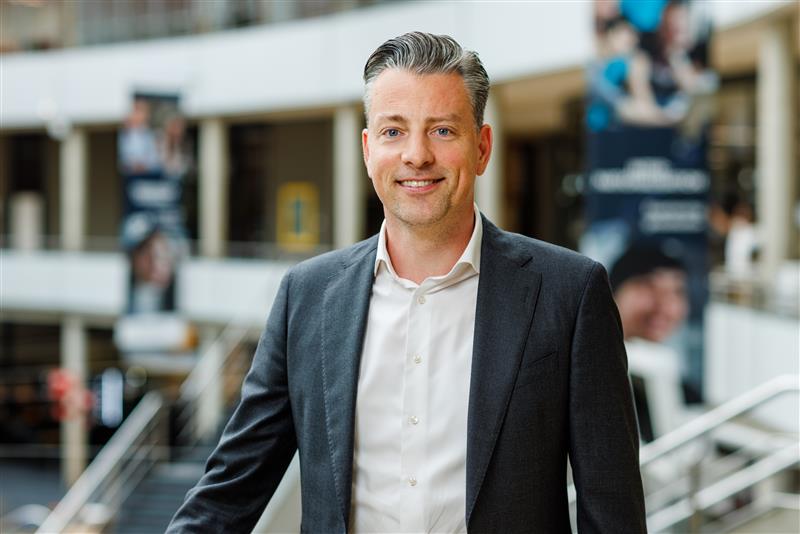EB member Arend Hardorff: ‘Internationalisation is in our DNA. That doesn't suddenly change'
7 January 2025
There are no two ways about it, the importance of internationalisation is paramount to THUAS.

There are no two ways about it, the importance of internationalisation is paramount to THUAS. But the way we shape that in our policy moves with the times, societal needs, and our own needs as a university of applied sciences. EB member Arend Hardorff explains the new highlights for the coming years.
Our university of applied sciences has always had a clear focus on internationalisation. ‘Part of that has to do with our location’, Arend explains. ‘In an international and diverse city like The Hague, even someone with a local profession needs to have intercultural skills. For example, entrepreneurs, lecturers, and social workers from The Hague deal with people from other cultures and countries on a daily basis. But that is not the only thing. Nowadays, society's issues, e.g. in terms of sustainability or security, do not end at national borders. To prepare students well for the future, we must prepare them to work in different cultural contexts. Whether that is by including international cases in our Dutch-language education, or by welcoming the international community into our English-language degree programmes.’
Higher quality through internationalisation
Politicians have recently raised considerable questions about the latter form of internationalisation. This is because international students obviously need somewhere to live, and that chafes in a country with a housing problem. ‘Politicians ask themselves: what does their presence contribute to the Netherlands? Any lecturer standing in front of a class with both Dutch and international students knows the answer to that,’ Arend continues. ‘The commitment that international students show and the quality they expect from a knowledge institute noticeably lifts the standard of their fellow students and educators. This permeates throughout the university of applied sciences. Their presence raises the bar. And that's good for everyone.’
Recognising and bearing responsibility
‘But of course we are not blind and deaf to signals from society,’ he continues. ‘Housing is a legitimate concern. Therefore, we take our responsibility in that area by helping organise student accommodation for international students. We also want to better equip international students to stay here after their studies, for instance by teaching them Dutch. We want to make it easier for them to contribute to society in various ways, especially in sectors where the Dutch labour market is experiencing shortages. And thus, we have the first new emphasis of our internationalisation policy to tackle,’ he summarises. ‘Namely upholding our international character but recognising and bearing relevant responsibility.’
Deepening partnerships
The second emphasis is more substantive in nature. ‘THUAS does have hundreds of low-threshold collaborations with universities and universities of applied sciences worldwide, for example for student exchanges. We are ready to further deepen a limited number of partnerships so that we can substantially strengthen each other on multiple levels. Therefore, we look more specifically at which institutes are of interest to us because of thematic choices they make in both education and research. In doing so, a few key areas around the world stand out: in Europe, Indonesia and South Africa, we are currently working on deepening those partnerships.’
Similar challenges and solutions
To put his money where his mouth is, Arend has recently travelled to with researchers to South Africa. ‘There, we explored content interfaces around the energy transition with four universities, among others,’ he says. ‘Even though it is a country with a completely different starting point, our challenges and solution directions on this issue are similar. And the technical aspect of energy transition automatically also leads to opportunities for social, economic and spatial cooperation. In doing so, we do justice to the multidisciplinary nature of these issues, from which training in those fields also benefits. So, exactly in line with the new direction, we can interact on several topics and also nicely bridge the gap between research and education. For example, also through our new master's degree programmes.
Learning from each other, including at a managerial level
Arend was also inspired at a personal level during the trip, he concludes. ‘We observed in South Africa how universities, as an aftermath of the apartheid regime, dare to take an outspoken role in the political debate on inequality in society. And that they actively take responsibility for it. This has strengthened me in my mission as an administrator and representative of our own university of applied sciences community in the Haaglanden region.’